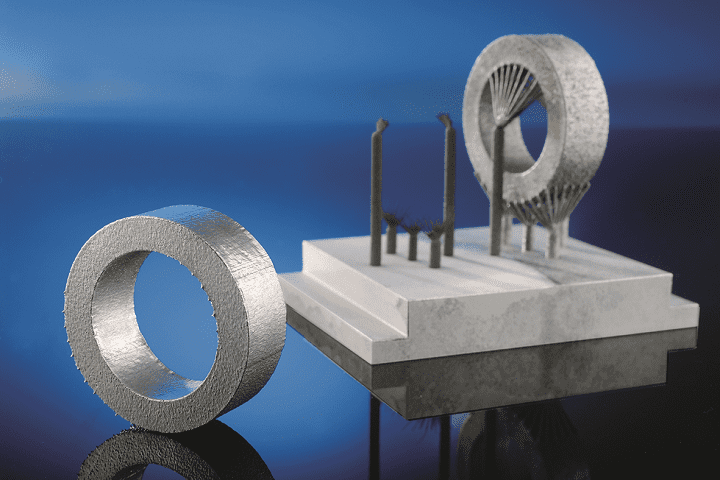After three years of inspection, the German Federal Ministry of Education and Research (BMBF) and several partners – two research institutes and five companies have concluded the “Integration of Additive Manufacturing Processes in Automobile Series Production,” project also known as “AutoAdd”.
Coordinated by Daimler AG, a German multinational automotive corporation, this BMBF project included the Fraunhofer Institute for Laser Technology ILT and the Karlsruhe Institute of Technology (KIT), as well as BMW Group, TRUMPF, GKN Sinter Metals Engineering, Netfabb and Autodesk.
The project partners focused on integrating Laser Powder Bed Fusion (LPBF) into automotive series production, in order to develop a cost-effective hybrid process chain.
The BMBF initiative
Founded in 1994, the BMBF intends to bring light into production under the term “Photonic Process Chains.” It has been working on various projects in order to promote the intelligent linking of photon-based manufacturing processes, like metal 3D printing, as a means to develop complex or individualized products. The 14 projects from the BMBF, including AutoAdd, aims to develop flexible, conceptual hybrid manufacturing designs, which can then be used for producing complex products more efficiently.
As a result of the AutoAdd project, the project partners developed production-ready optical designs, an interchangeable cylinder principle, and a modular system architecture, which allows the use of multiple beam sources. Moreover, the project team designed promising automatable post-processing concepts, including removal of support structures, and novel scalable materials.
The AutoAdd project
The AutoAdd project initiated in 2015 with an estimated €3.37 million worth of funding – 57% of which was raised by the BMBF. Each partner led specific roles in accelerating LBPF technologies in automotive. By using a simulation model, KIT evaluated many possible LPBF plant concepts.
Wet-chemical immersion baths and modular cylinders can now be used to remove batchwise components in the post-processing step, according to the Fraunhofer partners. This has enabled automation within the complete process chain. Ultimately, this can boost the overall profitability of LPBF processes.
The AutoAdd project team has also designed standard metrics for the evaluation of LPBF manufacturing equipment and discovered them for the most popular equipment manufacturers as part of a large-scale benchmarking exercise.
The Fraunhofer partners said, “One of the most important points needed to make additive manufacturing technology ready for series production – the reproducibility of the mechanical properties – was demonstrated and evaluated in several state-of-the-art facilities. Integrating an economic additive process chain in automotive mass production can now be considered possible after the end of the project.”
Furthermore, this research project supported four dissertations, which have been used in lectures. BMBF will initiate another project in 2019, partly based on the results of AutoAdd. The new project will deal with the line-integration of additive manufacturing processes.


